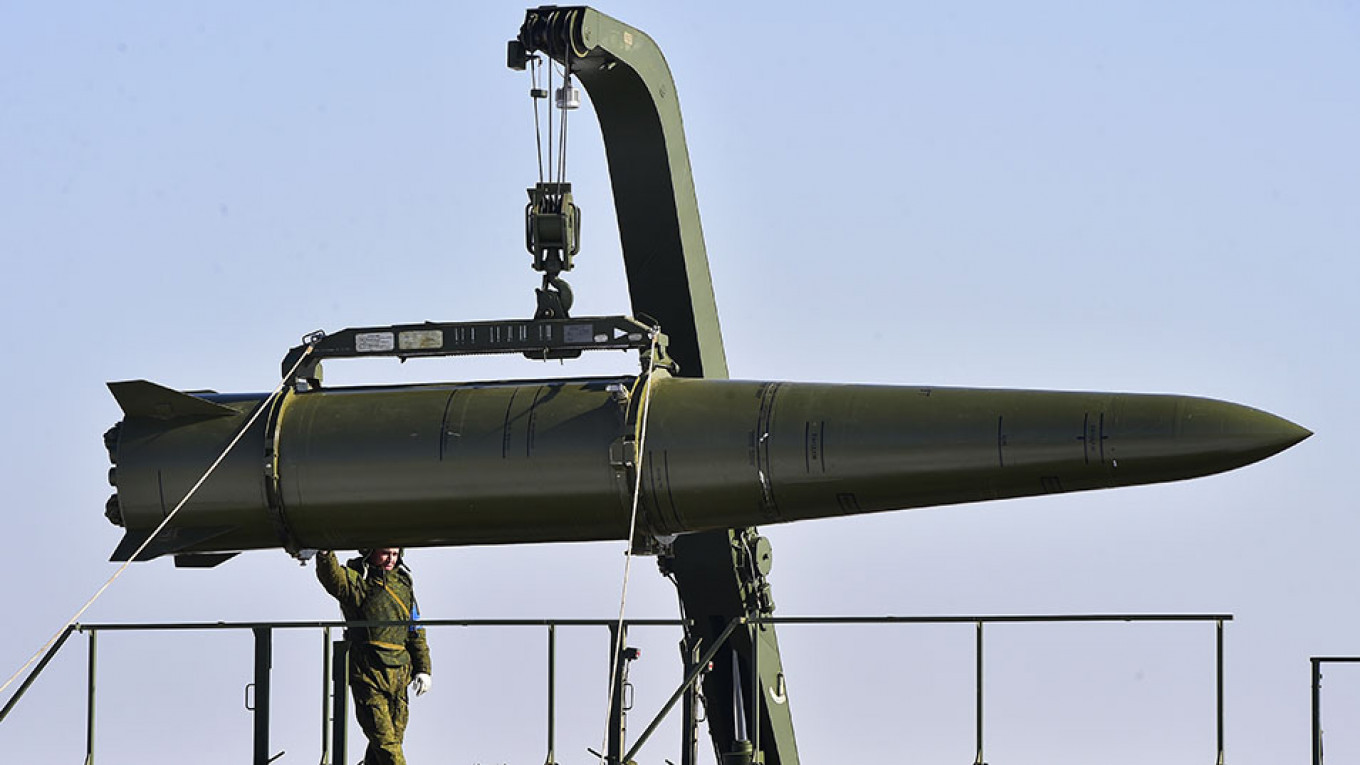
The United States formally withdrew from a landmark nuclear missile pact with Russia on Friday after determining that Moscow was in violation of the treaty, a claim the Kremlin has repeatedly denied.
U.S. President Donald Trump said the U.S. would terminate adherence to the 1987 arms control accord, known as the Intermediate-range Nuclear Forces Treaty (INF), senior administration officials told reporters.
The treaty bans either side from stationing short- and intermediate-range, land-based missiles in Europe. Washington signaled its intention six months ago to pull out of the agreement if Russia made no move to adhere to it. Germany, Britain, Poland and the NATO military bloc have joined the U.S. in blaming Russia for violating the INF Treaty and allowing it to lapse.
Russia, which denies the violations and accuses Washington of pulling out because it wants to pursue a new arms race, confirmed the end of the pact in a Foreign Ministry statement published Friday.
The INF’s demise means both Washington and Moscow are legally free to develop and deploy ground-launched nuclear and conventional ballistic and cruise missiles with ranges of 500 to 5,500 kilometers.
Here’s how Russian officials and military experts have reacted to the end of the INF Treaty:
— Russia said it has asked the U.S. for a moratorium on the deployment of short and intermediate-range nuclear missiles in Europe, Deputy Foreign Minister Sergei Ryabkov was quoted as saying by the state-run TASS news agency.
— President Vladimir Putin says Russia does not want an arms race and he has promised he will not deploy Russian missiles unless the United States does so first. However, should Washington take such a step, Putin says he would be forced to deploy Russian hypersonic nuclear missiles on ships or submarines near U.S. territorial waters.
— NATO Secretary-General Jens Stoltenberg dismissed Russia’s moratorium request on Friday, saying it was “not a credible offer” since he said Moscow had already deployed illegal missiles.
“There are no new U.S. missiles, no new NATO missiles in Europe, but there are more and more new Russian missiles,” Stoltenberg said.
— “The U.S. is playing a destructive role today. We’ll be drawing near nuclear war if there are no deterrents,” Russian military expert Viktor Litovkin told The Moscow Times.
Litovkin predicted that “Europe will become less secure, and Russia will also have to place its missiles there.”
— The U.S. “realizes that they’re destroying the entire international security system because they want to build a new world order,” said Konstantin Sokolov, a geopolitical expert at the Russian Academy of Natural Sciences.
Russia “won’t make any sudden moves, but anyone who dares attack Russia knows that Russia will cause serious damage,” he told The Moscow Times.
— UN Secretary-General Antonio Guterres voiced concern by rising tensions between nuclear-armed states, warning Thursday that “the world will lose an invaluable brake on nuclear war” with the INF’s expiration.
— Mikhail Gorbachev, the former Soviet leader who signed the INF Treaty with the U.S. in 1987, said the pact’s demise will lead to “chaos in world politics.”
“Today we need to focus on the last pillar of global strategic security — the New START treaty,” Gorbachev told Interfax, referring to a 2010 U.S.-Russian pact that limits strategic nuclear missiles.
Reuters contributed reporting to this article.
